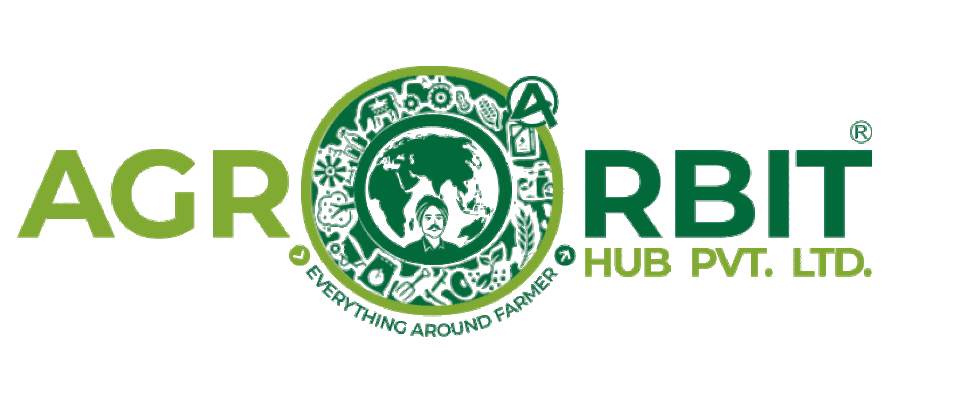

Revolutionizing Agriculture with Nano-Urea: A Sustainable Solution for Crop Nutrition
In the realm of modern agriculture, the excessive use of conventional nitrogenous fertilizers like urea has led to a skewed NPK (Nitrogen, Phosphorus, Potassium) ratio, posing significant challenges to soil health, environmental sustainability, and crop productivity. However, amidst these challenges emerges a revolutionary Agri-input - Nano-Urea, leveraging the power of nanotechnology to transform the way we nourish our crops.
Challenges of Conventional Urea Usage:
Conventional urea
fertilizers, while widely utilized in global agriculture, come with their own
set of drawbacks. With urea accounting for over 82% of nitrogenous fertilizers
applied to crops globally, the sheer magnitude of its usage poses significant concerns:
- Low Use Efficiency: The low utilization
efficiency of urea, ranging from 30-40%, not only results in economic
losses for farmers but also compromises the health of soil, air, and water
bodies.
- Environmental Impact: Excessive application
of urea leads to environmental degradation, including soil acidification,
nitrate leaching, and contamination of groundwater, posing a threat to
aquatic life and human health.
- Crop Susceptibility: Overuse of urea
fosters excessive foliage growth, making crops more susceptible to pests,
diseases, and lodging, thereby reducing overall agricultural productivity.
- Pollution: The conversion of urea into harmful nitrogen oxides (nox) contributes to air pollution and exacerbates climate change, undermining global efforts to limit temperature rise and achieve sustainable development goals.
Introducing Nano-Urea:
Nano-Urea emerges as a
game-changer in the realm of agricultural sustainability, offering multifaceted
benefits that address the short comings of conventional urea fertilizers:
- Environmental
Sustainability: By
harnessing nanotechnology, Nano-Urea significantly enhances nitrogen use
efficiency, minimizing wastage and mitigating environmental pollution. Its
precise nutrient delivery mechanism ensures optimal absorption by crops,
reducing nitrogen leaching and nox emissions.
- Soil Health and Water
Quality:
Nano-Urea promotes soil health by fostering balanced nutrient uptake,
thereby enhancing soil fertility and reducing the risk of nutrient runoff
and groundwater contamination. Its controlled release formulation
minimizes nutrient losses, preserving water quality and safeguarding
aquatic ecosystems.
- Climate Resilience: Nano-Urea aligns with
global sustainability goals, offering a pathway towards climate resilience
and carbon neutrality. Its reduced environmental footprint and enhanced
crop productivity contribute to mitigating greenhouse gas emissions and
supporting climate-smart agriculture practices.
- Economic Viability: While initially
perceived as a premium product, Nano-Urea proves to be a cost-effective
solution in the long run, optimizing input costs, improving crop yields,
and ensuring sustainable agriculture practices for future generations.
1. Wheat
and Mustard - ICAR, New Delhi:
- Results indicate that
applying Nano-N as two sprays can lead to a notable reduction of nitrogen
fertilizer by 25-50% in wheat and mustard crops.
- This reduction in
nitrogen fertilizer usage signifies a more efficient utilization of
nutrients, potentially resulting in cost savings for farmers while
maintaining or even enhancing crop yields.
2. Tomato,
Cabbage, and Cucumber - IIHR, Bengaluru:
- Application of Nano-N
in the form of two sprays demonstrates the ability to cut down urea
consumption by 50% in tomato, cabbage, and cucumber cultivation.
- The integration of
Nano-N leads to improved plant growth and development, suggesting enhanced
nutrient uptake and utilization, thereby contributing to better agronomic
performance of these vegetable crops.
3. Wheat -
Anand Agricultural University (AAU), Gujarat:
- Foliar application of
Nano-N, Nano-Zn, and Nano-Cu shows promising results in wheat cultivation.
- The combination of
these nano-fertilizers significantly increases the yield attributes of
wheat, indicating improved grain production and quality.
- Importantly, the application of nano-fertilizers does not alter soil properties after the harvest, suggesting their environmentally friendly nature and minimal impact on soil health.
Implications:
- Reduction in Urea
Consumption: The
findings underscore the potential of Nano-N to substantially reduce urea
consumption by 50% across various crops, mitigating the adverse
environmental impacts associated with excessive urea usage.
- Enhanced Yield and
Quality: The
synergistic effects of Nano-N, Nano-Zn, and Nano-Cu contribute to
increased crop yield and quality, enhancing the economic viability of
farming operations.
- Environmental
Sustainability: The
adoption of nano-fertilizers offers a sustainable approach to agriculture
by promoting efficient nutrient management, minimizing nutrient losses,
and preserving soil health for future generations
Nano-technology based agricultural inputs
represents a significant advancement in modern farming practices. Here's a
detailed explanation of the features and benefits of this revolutionary Agri-input:
1. Nitrogen
Fertilizer Delivery:
- Nano-technology based
agri-inputs provide nitrogen fertilizer to plants in a highly efficient
manner.
- Nanotechnology allows
for the precise formulation and delivery of nutrients, ensuring optimal
absorption by plant tissues.
2. Ease of
Use:
- One of the key
advantages of nano-fertilizers is their ease of use. They can be simply
mixed with water and sprayed onto plant leaves.
- This method of
application allows for targeted delivery of nutrients directly to the plants,
bypassing the soil and potential nutrient loss through leaching or
volatilization.
3.
Extensive Testing and Validation:
- Nano-fertilizers
undergo rigorous testing and validation procedures to assess their
efficacy and safety.
- They have been tested
on over 11,000 farm fields across 94 different crops, as well as in more
than 20 agricultural research institutes and universities on 43 crops.
- This extensive testing
ensures that the nano-fertilizers perform effectively across a wide range
of crops and agricultural conditions.
4.
Government Approval and Compliance:
- The nano-fertilizers
have received approval from the Government of India, indicating their
adherence to regulatory standards and guidelines.
- They comply with both
national (India) and international safety and toxicity guidelines for
testing nanomaterials.
- This ensures that the
nano-fertilizers meet stringent quality and safety standards, providing
assurance to farmers and consumers alike.
5.
Promotion of Sustainability and Precision Agriculture:
- Nano-fertilizers play a
crucial role in promoting sustainable and precision agriculture practices.
- By delivering nutrients
directly to plants in a targeted manner, they minimize nutrient wastage
and environmental impact.
- Their precise
formulation and delivery mechanism contribute to improved nutrient use
efficiency, reduced environmental pollution, and enhanced crop yields.
- Furthermore, by
promoting sustainable farming practices, nano-fertilizers support
long-term soil health and ecosystem resilience, ensuring the viability of
agriculture for future generations.
Why it serves as an
effective solution for farmers:
1.
Application Rate and Timing:
- Nano Urea is applied at
a rate of 500 ml per acre at the initial growth stage of the crop and
before flowering.
- This timing is
strategic, as it ensures that the nitrogen is available to the plants when
they need it the most for vigorous vegetative growth and reproductive
development.
2.
Absorption and Translocation:
- When sprayed onto the
leaves, Nano Urea is readily absorbed by the plant tissues.
- The nano-sized
particles facilitate easy penetration through the leaf surface and entry
into the plant's vascular system.
- Once inside the plant,
Nano Urea is translocated to various parts of the plant, including the
stems, leaves, and reproductive organs, through the vascular system.
3.
Metabolic Assimilation:
- Nano Urea is
metabolically assimilated by the plant cells, where it undergoes
biochemical transformations.
- Within the plant, Nano
Urea is broken down into its constituent nitrogen molecules, which are
then utilized for various metabolic processes.
- The nitrogen derived
from Nano Urea is assimilated into proteins, amino acids, and other
nitrogen-containing compounds essential for plant growth and development.
4. Source
Credibility:
- The information
provided regarding the absorption, translocation, and metabolic
assimilation of Nano Urea is supported by scientific research, as
referenced from Wang et al. 2013.
- This source adds
credibility to the efficacy and effectiveness of Nano Urea as a nitrogen
fertilizer alternative.
5.
Advantages and Benefits:
- Nano Urea offers
several advantages over conventional urea fertilizers. Its foliar
application allows for targeted nutrient delivery, minimizing nutrient
losses and maximizing nutrient use efficiency.
- The nano-sized
particles ensure rapid absorption and translocation within the plant,
leading to more efficient nutrient uptake and utilization.
- By providing nitrogen
in a form that is readily available and easily assimilated by the plants,
Nano Urea promotes healthier growth, improved yield, and enhanced crop
quality.
- Additionally, Nano Urea reduces the risk of environmental pollution associated with conventional urea fertilizers, such as nitrogen leaching and nitrous oxide emissions, thereby contributing to sustainable agriculture practices.
Conclusion:
In conclusion, Nano-Urea stands at the forefront of agricultural innovation, offering a sustainable solution to address the challenges posed by conventional nitrogenous fertilizers like urea. With its ability to enhance nitrogen use efficiency, minimize environmental pollution, and promote soil health, Nano-Urea represents a significant leap forward in modern farming practices. By leveraging the power of nanotechnology, Nano-Urea provides a precise and targeted approach to crop nutrition, ensuring optimal nutrient uptake and utilization. Its efficacy has been validated through extensive testing and research, demonstrating promising results across a wide range of crops and agricultural conditions. Furthermore, Nano-Urea's role in reducing urea consumption, enhancing crop yield and quality, and fostering environmental sustainability underscores its potential to revolutionize agriculture. As we strive towards a more sustainable and resilient food system, Nano-Urea emerges as a key enabler, paving the way for a future where agriculture is not only productive but also environmentally friendly and socially responsible. In essence, Nano-Urea represents more than just a fertilizer—it symbolizes a shift towards a more sustainable and efficient approach to crop nutrition, ensuring food security for generations to come while safeguarding the health of our planet. As we continue to embrace technological advancements in agriculture, Nano-Urea stands as a beacon of hope, ushering in a new era of sustainable farming practices and agricultural prosperity.
Note : This research is based on google we are not responsible for any other circumstances







